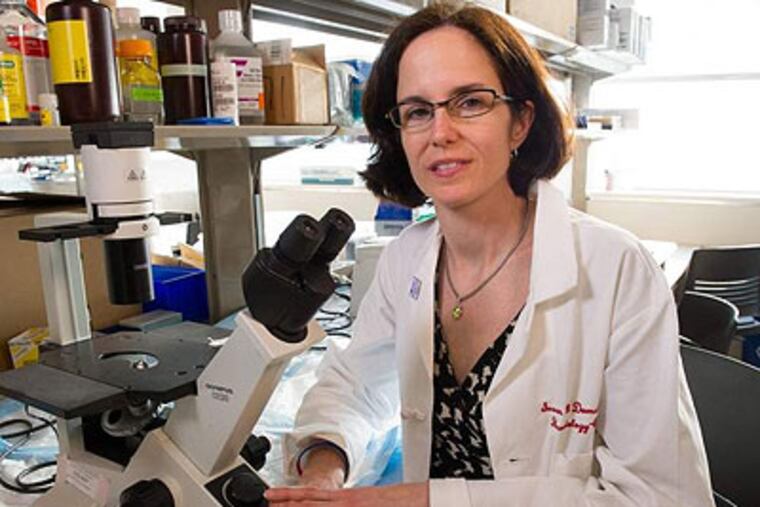Penn gets $25 million for cancer-research center
The University of Pennsylvania has received a gift of $25 million to start a research center focused on the treatment and prevention of cancers linked to certain hereditary gene mutations, the Philadelphia institution said Tuesday. The donors behind the Basser Research Center are Jon and Mindy Gray, 1992 Penn graduates. Jon Gray, 42, is global head of real estate and a member of the board at New York investment and advisory firm Blackstone Group

The University of Pennsylvania has received a gift of $25 million to start a research center focused on the treatment and prevention of cancers linked to certain hereditary gene mutations, the Philadelphia institution said Tuesday.
The donors behind the Basser Research Center are Jon and Mindy Gray, 1992 Penn graduates. Jon Gray, 42, is global head of real estate and a member of the board at New York investment and advisory firm Blackstone Group
The center, to be housed at Penn's Abramson Cancer Center in University City, is named in honor of Mindy Gray's sister, Faith Basser, who died at 44 of ovarian cancer caused by a gene mutation.
The mutation, which affects genes BRCA1 and BRCA2, also is associated with increased risk of breast cancer.
"We hope that the Basser Research Center will eliminate BRCA-related cancers and, in doing so, provide a road map for curing other genetic diseases," the Grays said in a news release from the university.
A woman's risk of breast cancer is 60 percent to 80 percent if she inherits a harmful mutation of BRCA1, Susan Domchek, an associate professor of hematology/oncology at Penn's Perelman School of Medicine, said in an interview. For ovarian cancer, the risk is 20 percent to 45 percent, she said.
"These are massively increased risks," said Domchek, who will be the founding director of the Basser Research Center.
By contrast, the overall risk of breast cancer is 12 percent; for ovarian cancer, the overall risk is 1 percent to 2 percent, she said.
The funding from the Grays is expected to start in July and will pay for about five years of operations.
Priorities include acceleration of research into the biology of the genes, development of vaccination strategies, and discovery of better detection methods, Domchek said.
The center is designed to be comprehensive in that it will encompass not just research and treatment, but also services for families that carry the mutations.
With the best current strategy for dealing with these conditions being the removal of breasts and ovaries, "the status quo should not be considered sufficient," Domchek said. "We've got to do something better. We've got to do something different."
Contact Harold Brubaker at 215-854-4651 or hbrubaker@phillynews.com.